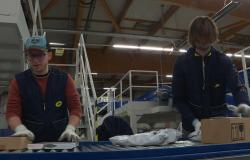This column analyzes the recent drop in prices (-8%) on the used car market after three years of dizzying increases.
After three years of dizzying inflation, the used car market is now experiencing an equally dazzling drop in prices, reaching 8% in a few months on certain categories of vehicles. A reversal which delights some market players but which worries because of its ecological impact. However, second-hand cars are not always the most polluting and, provided their regular maintenance is encouraged, could on the contrary help reduce the carbon footprint of the automobile sector.
The end of an unprecedented period of growth
In 2020, the health crisis linked to the COVID-19 pandemic paralyzed the French economy and initiated a period of galloping inflation for the used automobile sector. An increase that is particularly visible on vehicles over 15 years old, whose average price has increased by 63% in three years! The reasons for this are known: the pandemic and then the war in Ukraine have imposed significant delivery times on the most affordable new vehicles. Motorists have therefore massively switched to the second-hand market and in particular to recent models, increasing their prices and then, through a domino effect, that of older models. Over the same period, ecological regulations have multiplied, ousting the most polluting cars from city centers and initially contributing to increasing the average price of new cars at an unprecedented rate (+23% in three years according to Argus) . Ecological bonus and Low Emission Zones have contributed to a rapid reduction in the average CO2 emissions of new cars, falling from 119.5 g/km in January 2020 to 94.4 g/km in January 2024. turning point which has also accelerated the renewal of the fleet and is now contributing to the decline in prices on older used vehicles.
A welcome reduction in times of high inflation
With a drop of 8% on average over three months, the market is indeed recording its sharpest decline in many years. A decline which delights many motorists whose purchasing power has been largely undermined by the galloping inflation of recent years: 5.2% in 2022 and 4.9% in 2023 according to INSEE. But by making the oldest thermal vehicles much more attractive than the others, does this development not risk harming the decarbonization of this industry? Most economists agree on the need to influence the “price signal” to encourage the purchase of the cleanest cars and make the most polluting ones less attractive. Here, the dynamic is completely opposite: the cars that emit the most greenhouse gases are by far the most accessible for French people with extremely limited wallets. This is confirmed by a study carried out by the Autoscout24 sales site: almost 50% of searches concern vehicles with more than 100,000 km on the clock and around 13% of vehicles having already driven 200,000 km.
Strengthen car maintenance
The accessibility of used cars is, however, not completely irreconcilable with the imperative of decarbonization of the sector. Let us point out that buying second-hand contributes to the circular economy by extending the life of vehicles and reducing the need for production of new vehicles. Furthermore, if the oldest vehicles are on average much more polluting than others, their level of emissions directly depends on the quality of their maintenance. We know that diligent maintenance of the entire vehicle (cleaning the particle filter, checking tire pressure, changing used parts) can considerably reduce its fuel consumption and fine particle emissions. In this context, the craze for older vehicles should not worry but encourage all initiatives in favor of better vehicle maintenance: raising driver awareness, facilitating technical diagnostics, subsidies for the most modest motorists, etc. . Far from being bad news, the drop in prices could on the contrary be a new incentive to ensure that the ecological transition benefits everyone.






